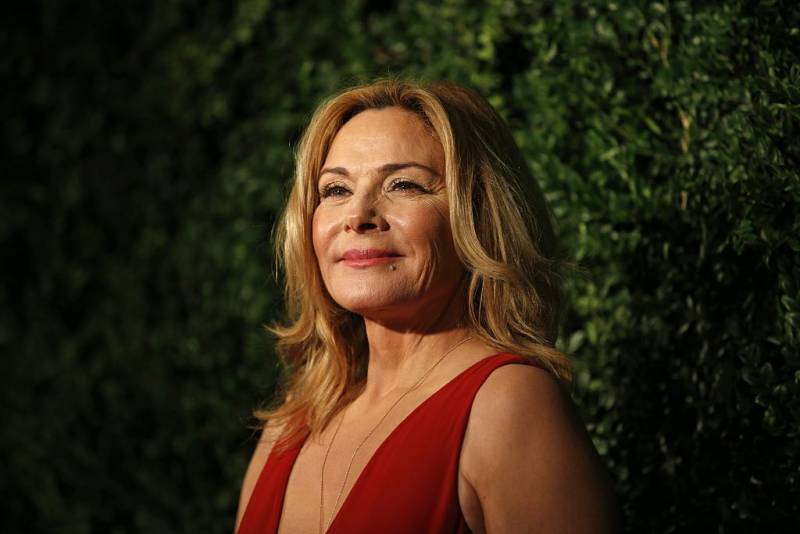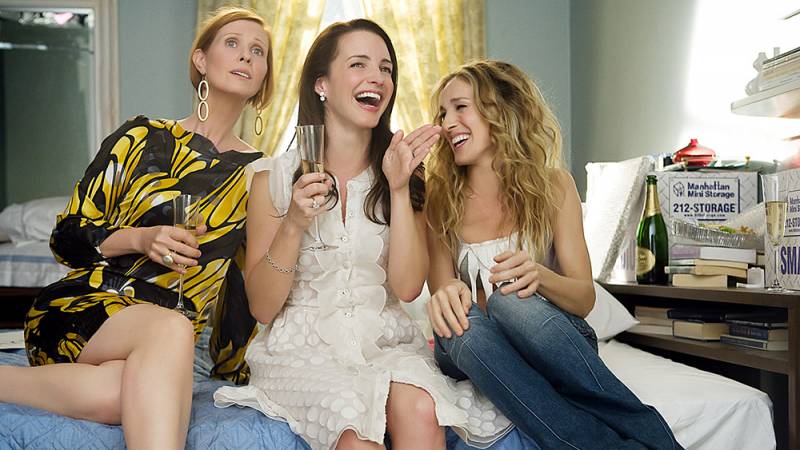Vivacious and all about her own pleasure, Samantha Jones couldn’t be bothered with the marriage-and-a-baby timeline society imposes on women. Her raunchy humor—always delivered with an eye roll and an “oh, honey”—gave Sex and the City its secret sauce. So naturally, fans were disappointed when HBO Max announced a 10-episode SATC reboot with all the original characters except for her.
In the forthcoming revival, titled And Just Like That…, Carrie Bradshaw (Sarah Jessica Parker), Miranda Hobbes (Cynthia Nixon) and Charlotte York Goldenblatt (Kristin Davis) will resume their journeys as gals about town navigating friendship and romance as 50-something-year-olds in New York City in 2021. But given the show’s past faux pas when it came to race and LGBTQ+ issues—and its narrow, ultra-privileged vision of feminism—I couldn’t help but wonder… can Sex and the City evolve along with the appetites of today’s diverse, identity-conscious audiences? And can it be nearly as funny without Samantha (Kim Cattrall)?

If we set aside for a moment the glaring error of portraying New York as a majority-white town, the core themes of SATC still hold up. The relationship and career pressures the characters navigated when the series debuted in 1998 still resonate with women today. Across six seasons that continued through 2004, the four best friends tried to “have it all” despite their own imperfections and society’s limitations, giving us priceless comedy (the Post-it break-up, Aidan and Big’s mud fight) and emotionally resonant moments alike.
But amid the many gems, the show sometimes found itself out of its depth when it attempted to cover topics beyond the world of white, rich, straight people. And, because Samantha was Sex and the City’s edgiest character, these offensive plots often involved her. Season 3, for instance, features one of the show’s only interracial relationships, when Samantha dates Chivon, a Black record executive. Although positioning the couple as modern and progressive, the episode’s main conflict is woefully stereotypical: Chivon’s sister is hell-bent on breaking them up because Samantha is white, and the drama leans on the damaging trope of the Black woman aggressor. Making it even more cringeworthy is the script’s frequent misuse of slang and AAVE.
In another unsavory episode, Samantha moves to the gentrifying Meatpacking District, where she feuds with trans sex workers who loudly chat outside her window at night. A moneyed newcomer to the neighborhood, Samantha goes full Karen, pouring water on them and threatening to call the cops. The script is full of T-words and other slurs, but everyone somehow makes up at the end when Samantha invites the ladies up for a rooftop barbecue.


